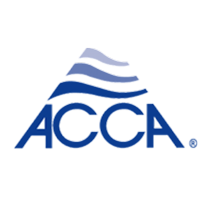
We spend a good majority of our time inside. As a matter of fact, the Environmental Protection Agency (EPA) has determined being inside comprises 90% of our time. Although, the EPA also says your indoor air can be three to five times worse than outside your home.
That’s since our homes are firmly sealed to boost energy efficiency. While this is good for your utility costs, it’s not so great if you’re a part of the 40% of the population with respiratory allergies.
When outdoor ventilation is insufficient, pollutants including dust and volatile organic compounds (VOCs) could get captured. As a consequence, these pollutants may aggravate your allergies.
You can enhance your indoor air quality with clean air and usual dusting and vacuuming. But if you’re still having issues with symptoms while you’re at your house, an air purifier might be able to help.
While it can’t get rid of pollutants that have landed on your couch or flooring, it could help freshen the air moving across your house.
And air purification has also been scientifically proven to help lessen some allergic symptoms, according to the American College of Allergy, Asthma and Immunology. It can also be useful if you or a loved one has a lung condition, including emphysema or COPD.
There are two models, a portable air purifier or a whole-home air purifier. We’ll discuss the distinctions so you can figure out what’s appropriate for your house.
Whole-House Air Purifier vs. Portable Air Purifiers
A portable air purifier is for a single room. A whole-house air purifier works alongside your home comfort equipment to purify your entire residence. Some models can purify by themselves when your heating and cooling unit isn’t running.
What’s the Best Air Purifier for Allergies?
Go after a purifier with a High Efficiency Particulate Air (HEPA) filter. HEPA filters are installed in hospitals and deliver the greatest filtration you can buy, as they eliminate 99.97% of particles in the air.
HEPA filters are even more powerful when combined with an ultraviolet (UV) germicidal light. This dynamic blend can wipe out dust, dander, pollen and mold, all of which are standard allergens. For the ultimate in air purification, consider a system that also has a carbon-based filter to decrease household smells.
Avoid buying an air purifier that creates ozone, which is the top component in smog. The EPA advises ozone could irritate respiratory issues, even when released at low concentrations.
The Allergy and Asthma Foundation of America has created a checklist of questions to consider when buying an air purifier.
- What can this purifier extract from the air? What doesn’t it extract?
- What’s its clean air delivery rate? (A better number means air will be cleaned more quickly.)
- How frequently does the filter or UV bulb need to be replaced]? Can I complete that on my own?
- How much do spare filters or bulbs cost?
How to Decrease Seasonal Allergy Symptoms
Want to have the {top|most excellent|best] outcome from your new air purification system? The Mayo Clinic recommends taking other measures to limit your exposure to seasonal allergy triggers.
- Stay in your home and keep windows and doors closed when pollen counts are high.
- Have other household members mow the lawn or pull weeds, since these tasks can worsen symptoms. If you must do these jobs on your own, you may want to consider trying a pollen mask. You should also shower immediately and put on new clothes once you’re finished.
- Avoid hanging laundry outside your home.
- Run air conditioning while indoors or while you’re on the road. Consider using a high efficiency air filter in your home’s heating and cooling unit.
- Balance your home’s humidity percentage with a whole-house dehumidifier.
- Hardwood, tile or linoleum are the ideal flooring types for lowering indoor allergens. If your residence has carpet, use a HEPA filter on your vacuum cleaner.
Let Our Specialists Take Care of Your Indoor Air Quality Needs
Ready to take the next step with getting a whole-house air purifier? Give our experts a call at 918-215-7608 or contact us online to schedule an appointment. We’ll help you choose the right unit for your house and budget.


